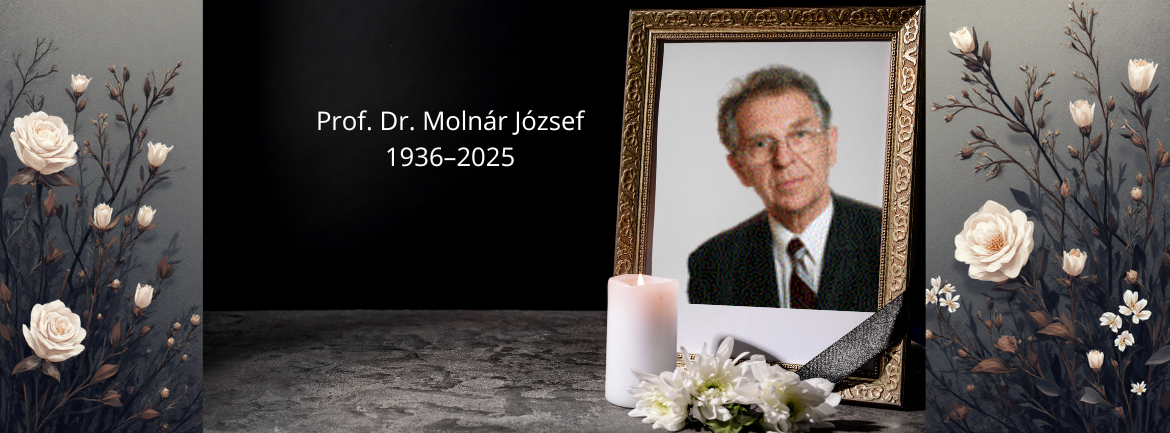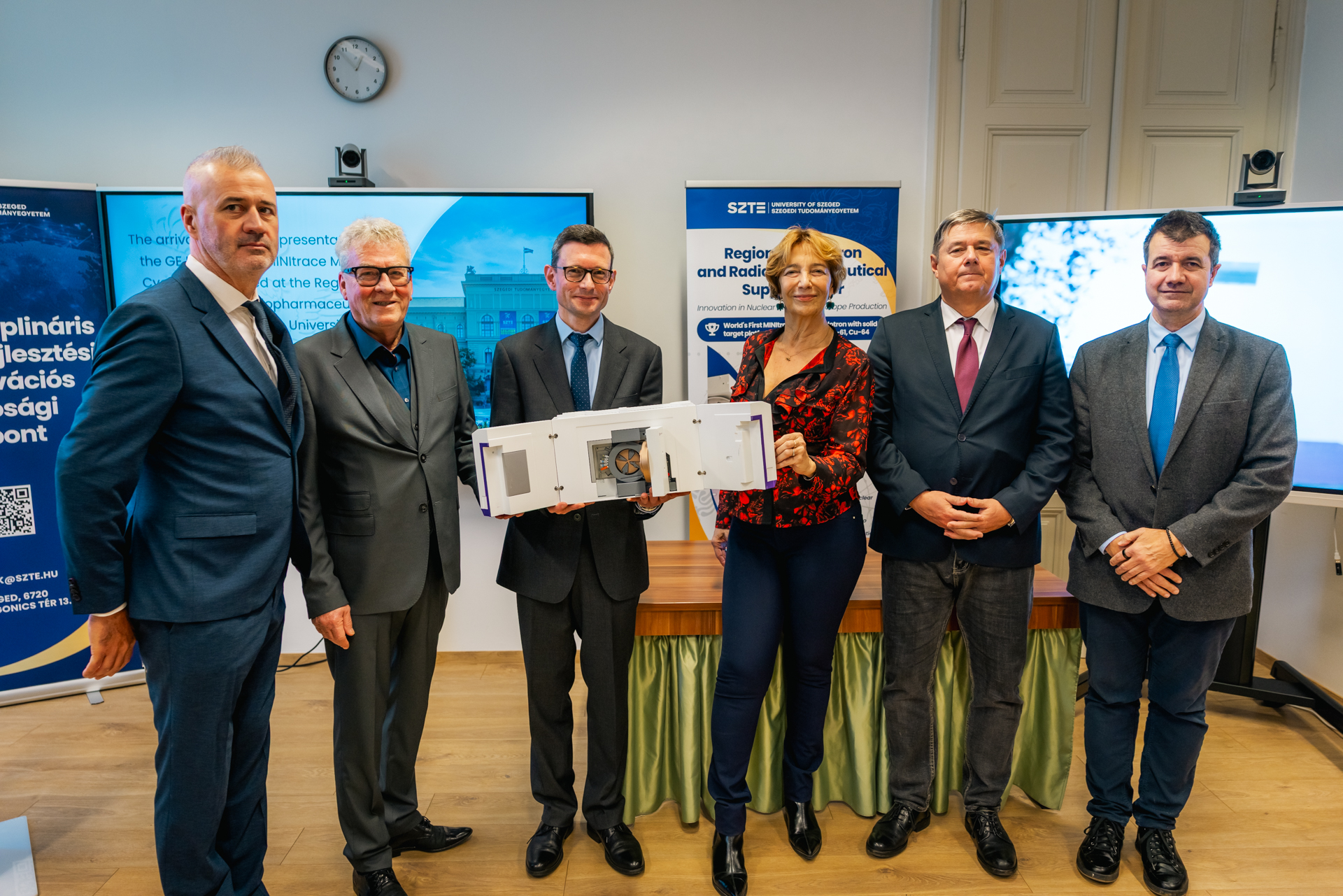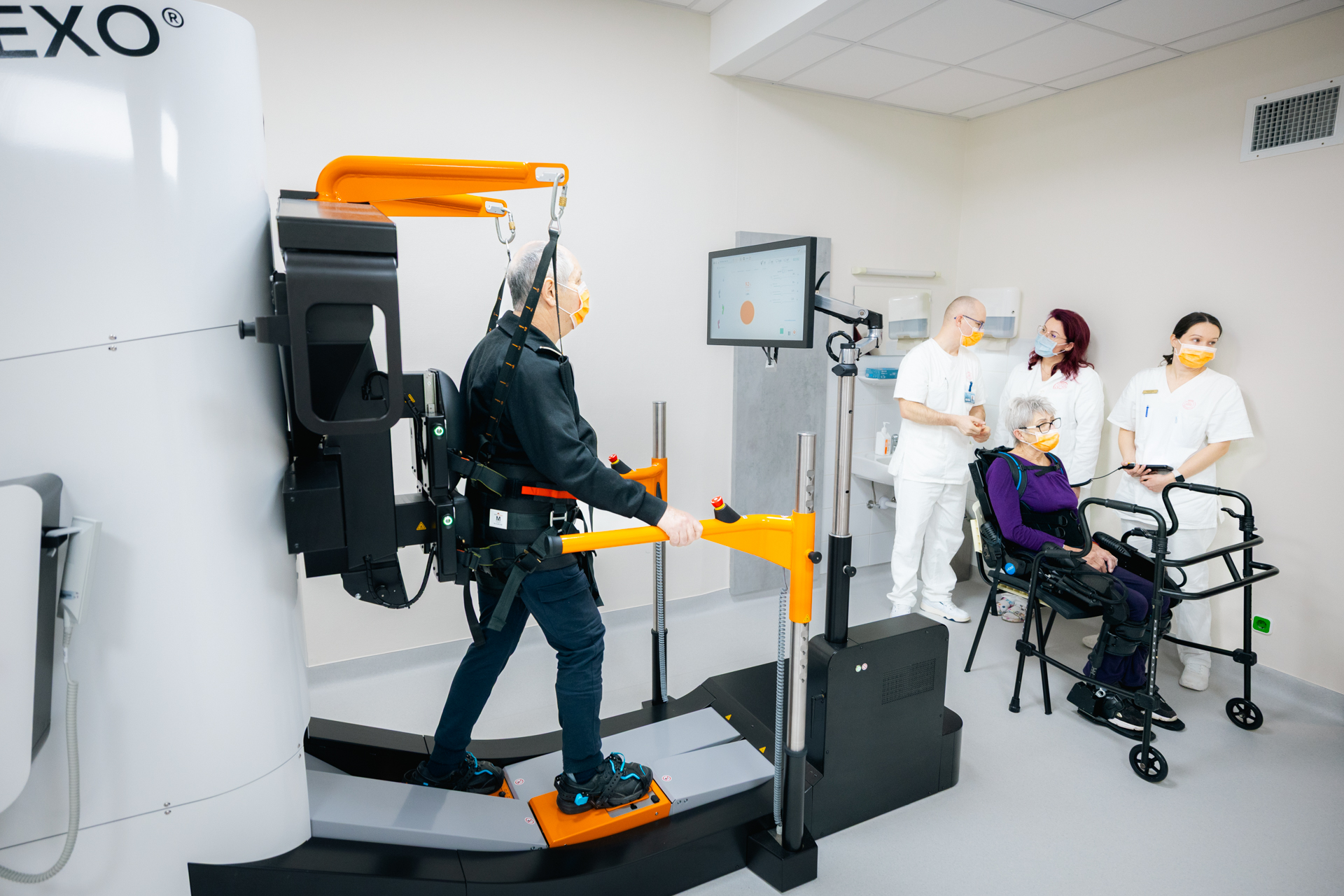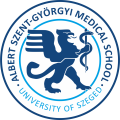University of Szeged
Albert Szent-Györgyi Medical School
Foreign Students' Secretariat
Your Education. Our Mission.
-
About us
- Accreditation
- Introducing the Faculty
- Management of the Faculty
- Departments of the Faculty
- Contact
- International Relations
- Campus plan
- Virtual open day and campus tour
- Student reviews
- International Student Union Szeged
- Szeged University Medical Alumni Association
- Szeged
- Hungary
- Videos
- Gallery
- Data Protection (GDPR)
-
Application & Admission
- Why choose us?
- Admission and Academic Bulletin
- Programmes and entry requirements
- Fees and Discounts
- Online Application / Dream Apply
- How to Apply / Application step by step
- Entrance / Evaluation Examination
- After Acceptance
- Stipendium Hungaricum Scholarship Programme
- Representatives abroad
- Downloads
- Watch our movies
- FAQs
- Student reviews
- Contact information
- Education
- News & Events
-
Albert Szent-Györgyi
- Albert Szent-Györgyi-s Family Tree
- Main places of Albert Szent-Györgyi's life
- The young scientist
- Szeged 1928
- Albert Szent-Györgyi and the youth
- Sport and the scientist
- Albert Szent-Györgyi, the researcher
- The internationally recognised scientist I.
- The internationally recognised scientist II.
- The internationally recognised scientist III.
- The rotary club and the scientist
- The Nobel Prize I.
- The Nobel Prize II.
- Albert Szent-Györgyi's educational activity at the university
- Albert Szent-Györgyi, Rector Magnificus of the University
- Albert Szent-Györgyi and social life in Szeged
- Albert Szent-Györgyi and the world war
- Albert Szent-Györgyi in the United States I.
- Albert Szent-Györgyi in the United States II.
- Albert Szent-Györgyi in the United States III.
Class of 1993
|
Ahmad Moukli |
|
Atin Kumar Saha |
|
Ebrahim Noori |
|
Edith Farid Abou Said |
|
George Vagujhelyi |
|
Hamed Hussein Ali |
|
Haytam A. Haj Khalil |
|
Hormazdiar Dara Dastoor |
|
Ishag Moh. Ahmed Moh. Khair |
|
Mahmood Mohammad Yousuf (Mahmood Nami) |
|
Mahmoud Mustafa Mahmoud Hilwah |
|
Masaru Tanaka |
|
Mehdi Jalali |
|
Mehrdad Mehravaran |
|
Menouchehr Bazyani |
|
Mohamed Ali Saleh Alsamawi |
|
Nasser Khalifa Ahmed |
|
Tahir Hani Raai |
|
Tibor J. Toplenszky |
|
Vanessa Lilian Quadros |
Latest news

It is with shock and sincere sorrow that we bid farewell to Professor Emeritus József Molnár, who passed away quietly at the age of 89.

Following a cornerstone-laying ceremony for SZTE’S Regional Cyclotron and Radiopharmaceutical Supply Center in April, another major milestone has been reached in one of the University of Szeged’s flagship strategic investments. On December 9, GE HealthCare announced that – for the first time worldwide – the MINItrace Magni cyclotron will be installed at the University of Szeged, marking a major advance for nuclear medicine and theranostic treatment in Hungary. At a special event held at the University’s main building, the significance and future impact of the pioneering device were outlined by Prof. Dr. László Rovó, Rector of the University of Szeged; Dr. Judit Fendler, Chancellor; Prof. Dr. László Pávics, Professor at the Institute of Nuclear Medicine and project leader; Dr. György Erőss, Regional Customer Relations Manager for Central and Eastern Europe at GE HealthCare Hungary Kft.; and Jan Wolber, Global Product Leader for GE HealthCare Digital.

The University of Szeged has inaugurated its Human Kinesiology Laboratory, where cutting-edge robotic technologies are being deployed to enhance the effectiveness of rehabilitation therapies and actively support patients throughout their recovery process.
Useful links
Faculty of MedicineFaculty of Dentistry
Faculty of Pharmacy
Faculty of Health Sciences and Social Studies
International Student Union of Szeged
SUMAA
University Library
Ministry of Foreign Affairs
Office of Immigration and Nationality
College International
International Mobility Centre (ERASMUS)
About us
Patient care
Albert Szent-Györgyi Medical School
Foreign Students' Secretariat
12 Dóm tér Szeged H-6720 Szeged
Phone: +36-62-545-458


